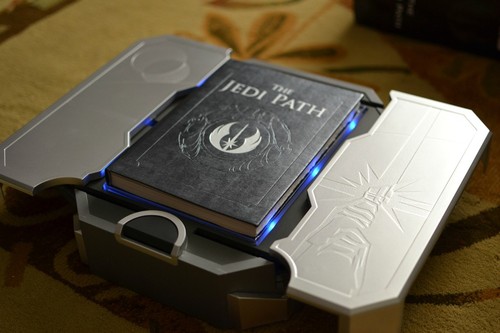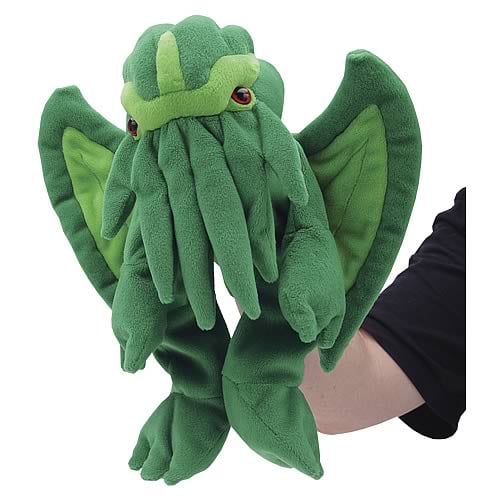For a long time, self-publishing was the exclusive province of those that couldn't or didn't produce a good enough product to warrant the attention of a real publishing house. The costs associated with actually printing a book independent of an established publisher alone were enough to deter most, to say nothing of the impossibilities of distributing the book.
If you're reading this, I am going to assume you don't need me to explain to you how Amazon, tablets and e-readers have changed this considerably. With next to no expense, a manuscript can be uploaded and is available for anyone with Kindle (or, you know, whatever) software to download.
Therein, of course, lies the rub. Now literally anyone can be a 'published' author, with nothing in the way of checks for quality, story or even spelling. Obviously, the publishing industry has produced its share of garbage (great, now that's in my browsing history), but at least you can bank on proper spelling.
If you're a book geek (again, I'm making some assumptions here), these are exciting times. How the indie vs. big publishing houses conflict will eventually play out is hard to say. But with said publishing houses slashing budgets at every turn, and the popularity of ebooks soaring (to say nothing of the profit for the authors from them), there are clear opportunities for upstarts. Does that mean we can expect to see the quality of self- and indie- published books increase as well? We can only hope. There are certainly quality works out there, and the purpose of this column will be to find them, emphasize them and set forth some manner of standard for self- and indie-published books.
Five Questions With: SC Harrison
I, personally, do not read 'young adult' fiction. If I did, however, it would be this lovely lady's, because her stated goal is to defy a lot of the conventions that make YA the trite and played-out arena it has become. Her first novel, Revive, came out earlier this year. You should pick it up. She was gracious enough to answer a few questions:
Why did you pursue self vs traditional publishing?
I wanted to maintain control over my own story, both legally and creatively. While I’m always open to change in the pursuit of a better, tighter product, I wasn’t about to censor the “scary stuff” just to make my book less of a financial risk to a publishing house. Giving readers a fresh, new brand of YA storytelling unbound by submission requirements is what I strive for.
Who were your biggest influences in writing?
Firstly, Dave Barry. Secondly, Anthony Burgess’ prose in A Clockwork Orange. His use of language to not only build atmosphere but even act as a character has latched itself onto my mind, right in the place where all words pass on the way to my hands. Each word must be careful and beautiful to make it to the paper. And also all the YA books I hated influenced me to write nothing like them.
What is your one-sentence synopsis of Revive?
When seventeen-year-old amnesiac Cat Lindensen discovers the truth behind her uncle’s careful façade—and her own lost past—she’s thrown headfirst into the harsh world of bargains and curses, and a love that tests her very sanity.
Who is your favorite character from Revive and why?
Uncle Hal. It took me years to get to know him and even longer to communicate the internal struggles boiling beneath his cool demeanor. He’s a man torn in several directions with conflicting intentions, none of which become clear until near the end of the series—or rather, the last page of the third book.
!SPOILER AHOY!
It appears that Uncle Hal is indeed involved in the rest of the series, despite the events in Revive.
!SPOILER ENDED!
What’s next for you?
Right now, dinner. After that, there are currently four more books in the Revive series awaiting monumental revision and release, which I hope to accomplish within the next couple of years. Outside of the fantasy realm I have a few other stories I’m sitting on for the time being. Two in particular I’m immensely proud of and wouldn’t consider handing to a publisher, as by the time all the dark, raw reality was cut in the name of marketability there’d be nothing left of the story save the scenes where my heroine checks the mail. These two are very personal to me, and so being able to share them on my own terms is a blessing.
Other Trends
Another avenue that amounts to self-publishing I am seeing on the rise is simply posting short stories or chapters of a novel online (apparently I am not as innovative as I thought). One science fiction work I am tremendously exited about is Tesla Prime and the Regulus Event, which has the first six chapters available online and is slated for a 2013 release. He is also working hard at producing a quality manuscript via editing and beta-reading, which is a pleasant change from those who push f7 and call that editing (note to writers: it is not).
What I'm Reading Now, In Case You Care
Worlds Other Than These, a short story collection edited by John Joseph Adams (who you hopefully know from Lightspeed Magazine) and published by the always-excellent Night Shade Books. So far, so good- I will have a detailed review for you next month.
What I'm Doing Now, In Case You Care
Wrapping up editing and cover design on my own short story collection, with the inspired title of 3024AD: Short Stories, Series One. If you care to read the unedited versions of most of them, feel free to over at www.3024ad.com, and I just started posting stories from the second series set in that same universe (bi-weekly, on Monday). In any case, the full, edited and expanded collection should be available on January 15 of 2013.






.cbr-049.jpg)













































